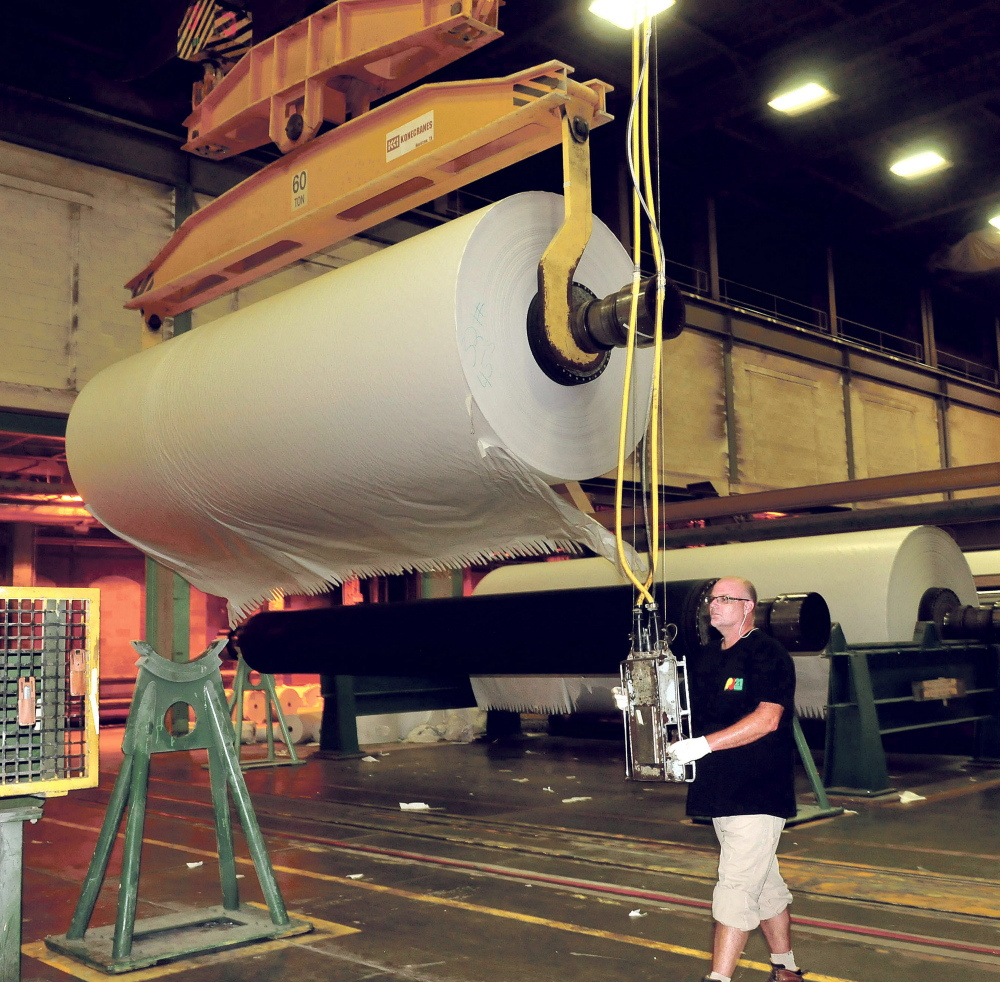Members of Maine’s congressional delegation and UPM Madison President Russ Drechsel testified Thursday before the U.S. International Trade Commission about damages to the Madison mill that they blame on subsidies from Nova Scotia’s government to Canadian paper producers.
“The mill workers in Madison are talented, dedicated, open to challenges, and innovative; in short, they are part of a proud paper-making community and tradition in Maine,” U.S. Sen. Angus King, I-Maine, said in his testimony. “The workforce at Madison is also justifiably frustrated with the conditions under which they’re effectively being asked to compete for business.”
U.S. Sen. Susan Collins, R-Maine, in her testimony, had a similar message: “Maine communities long dependent on paper mills are in real trouble. They need immediate relief from the unfair advantages afforded by illegal subsidies, specifically those provided to Port Hawkesbury Paper in Nova Scotia, Canada.”
The hearing before the International Trade Commission follows a monthslong investigation into whether the Nova Scotia government has been providing illegal subsidies to Port Hawkesbury Paper and other Canadian producers of supercalendered paper, a glossy magazine paper that is also produced by the Madison mill, which is owned by UPM, an international paper manufacturer.
U.S. Rep. Bruce Poliquin, R-2nd District, told the commission at Thursday’s hearing: “The loss of the good-paying jobs has been devastating to our proud families and communities” in his district, which includes most of central, western and northern Maine. He told the commission that Madison Paper “is one of our survivors.”
Poliquin said the mill “plays by the rule of international law” and so “has been forced to temporarily shut down several times and furlough its many hardworking employees.”
“On behalf of our honest, hardworking families throughout Maine’s 2nd Congressional District, and our world-class papermakers in Madison, I greatly appreciate your distinguished commission doing its job and protecting our workers from unlawful trade practices,” Poliquin said.
In January, the Madison mill cited the subsidies to the Canadian mill as a main reason why workers were laid off temporarily during a two-week shutdown at the Maine factory.
Drechsel, president of the Madison mill, has said repeatedly that the subsides have provided an unfair production advantage to the Canadian mill.
This month, the commission set tariff rates for supercalendered paper from Canada that will go into effect if they find that damage has been done to U.S. producers, which also include Verso Corp.’s Duluth mill in Minnesota.
In a news release Thursday, Collins said the tariffs also could help Maine’s Androscoggin Mill in Jay, which Verso also owns. That mill recently announced it will lay off about 300 workers before the end of the year, in part because of foreign competition.
Maine’s congressional delegation has urged the U.S. Department of Commerce to investigate all four Canadian supercalendered paper producers: Irving Paper Ltd., Catalyst Paper, Port Hawkesbury Paper and Resolute Forest Products.
Both Collins and King have criticized the department’s decision to limit its investigation to Port Hawkesbury Paper and Resolute Forest Products, saying it will result in unfair subsidies being placed on Irving and Catalyst, companies that employ more than 1,000 people in Maine, including at the Rumford Paper Mill, which is owned by Catalyst. Irving owns two saw mills in Maine, in Ashland and Dixfield.
Thursday’s hearing was billed as a step in helping the U.S. International Trade Commission “make a final determination as to whether unfair Canadian subsidies have materially injured or threatened to injure the U.S. supercalendered paper industry,” according to King.
“I believe that the strong enforcement of fair trade practices also means ensuring that anti-dumping and countervailing investigations are conducted in a thorough, fair and fact-based manner,” King said during his testimony. “I was disappointed that the Department of Commerce chose, as part of this investigation, to investigate only two of the four Canadian supercalendered paper producers – a decision which will likely negatively and unfairly impact two important businesses with significant operations in Maine.”
Send questions/comments to the editors.





Success. Please wait for the page to reload. If the page does not reload within 5 seconds, please refresh the page.
Enter your email and password to access comments.
Hi, to comment on stories you must . This profile is in addition to your subscription and website login.
Already have a commenting profile? .
Invalid username/password.
Please check your email to confirm and complete your registration.
Only subscribers are eligible to post comments. Please subscribe or login first for digital access. Here’s why.
Use the form below to reset your password. When you've submitted your account email, we will send an email with a reset code.